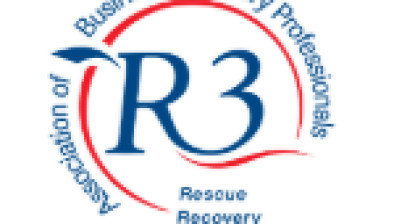R3 calls for director ID checks to cut chances of business fraud
Scottish insolvency expert R3 has called for company directors to face identity checks to help reduce business fraud.

A government consultation into enhancing the role played by Companies House in the UK’s anti-fraud framework, which recently closed, provides a real opportunity to significantly strengthen the UK’s overall corporate governance system.
Companies House acts as the central register of company information in Britain and is responsible for incorporating and dissolving limited companies.
Tim Cooper, chair of R3, and partner at Addleshaw Goddard in Edinburgh, said: “R3 has been concerned for some time about the relative laxness of some of the processes central to Companies House’s operations, especially those around verifying that directors are who they say they are, and we’ve long called for director ID verification to be introduced.
“The checks performed when opening a normal bank account are currently more rigorous than those carried out when registering a new company – banks rightly recognise that not ‘knowing their customer’ can lead to misuse of financial systems to facilitate fraud, and it seems only sensible to R3 to extend the same sort of scrutiny to individuals setting up a new business venture.”
He added: “The current lack of director ID verification means that individuals who wish to obscure their involvement with other firms can enter a slightly different version of their name onto the Companies House register.
“There is also a risk that directors who have previously been disqualified may continue to operate behind the scenes, and R3’s members often come across disqualified directors contributing to successive business failures or fraudulent activity, breaching the terms of their disqualification by acting as shadow directors and ‘advisors’, or using friends, family or other contacts as a ‘front’ for their involvement.”
He also said: “Entrepreneurs should of course not be discouraged from ‘trying again’ after a business failure, as they often learn lessons from such situations that contribute to their eventual success, but it is equally important that safeguards are put in place to protect everyone from directors who repeatedly act improperly.”
Mr Cooper said: “Companies House is a key part of the business landscape, and insolvency practitioners often use its register to build up a picture of directors’ track records and to follow flows of money through annual accounts when investigating potential fraud and other similar issues following the insolvency of a company.
“The implementation of an ID verification system is unlikely to discourage genuine entrepreneurship, but would be a significant deterrent to fraud, and could make a real positive difference to investigations of bad behaviour.”
He added: “Making the information held at Companies House as robust and accurate as possible can only help legitimate businesses by making it harder for fraudulent operators to hoodwink good-faith suppliers and customers, and R3 hopes that the Government will set out robust new measures and a clear timetable to implement them in order to boost anti-fraud efforts, not least on the part of the insolvency and restructuring profession.”
The Business Department’s consultation on enhancing the role of Companies House and on increasing the transparency of UK corporate entities closed in early August, and a response from the government is expected in the coming months.










